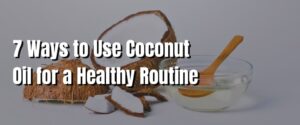If you love the beach, you should know that your pet is vulnerable to UV ray damage. This damage can be severe. How should you keep your pet safe?
Generously apply any pet-safe sunscreen of your choice on your pet’s snout to protect their skin from harmful UV radiation. This is important as it prevents painful burns and skin cancer from developing on your furry friend’s skin.
We have prepared this article to help anyone curious about pet sunscreens. Are pet sunscreens the same as human sunscreens or tailored to pets? Which pet sunscreens are best for my dog or cat?
Is Sunscreen Required for My Pet?

Yes, they do. If you live in a place with plenty of sunshine, then your pet is vulnerable to the harmful effects of UV, just like you are. The amount of damage varies depending on how much sunshine your pet is exposed to and their skin type.
Long-haired pets are at less risk of sunburn than short-haired pets because the hair helps shield them from harmful UV rays. However, remember that dogs and cats have no hair to shield their noses from sunshine. Other susceptible areas that need protection are their muzzles, ears, and other exposed skin areas.
What Varieties of Pet Sunscreens Are Offered?
Petkin

This dog sunscreen is claimed to have a mild, non-greasy composition equivalent to SPF 15 for humans. There are three categories to choose from:
- Use Doggy Sunwipes to apply sunscreen where needed, including on the ears, pink skin, nose, muzzle, and coat. Packets of 20 Doggy Sunwipes cost between $10 and $15.
- You may apply a stick sunscreen (Doggy Sunstick) on the pink area, ears, muzzle, nose, and other exposed skin areas. A 14g tube of Doggy Sunstick typically costs between $13 and $19.
- Doggy Sunmist is a piston spray sunblock that is once more simple to use on any region that needs to be protected from the sun. However, be mindful of your dog’s eyes! 120mL spray bottles of Doggy Sunmist are available and cost between $13 and $18.
My Pet Sunblock

My Pet Sunblock has zinc oxide and titanium as its base ingredients and is made for safe use on dogs, horses, cows, cats, pigs, and any other animal with pink unpigmented skin.
It is a natural sunscreen that you can apply to your pet, either dry as a powder or damp as a thick paste. The sunblock is water resistant and costs around $45 for a 170g tub.
Dr. Zoo Natural Sunscreen Free of Zinc
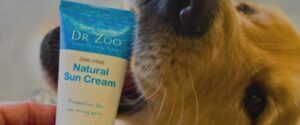
Dr. Zoo sunscreen is safe for dogs, cats, and horses because it is made of edible oils. Instead of zinc oxide, titanium dioxide serves as the foundation of the recipe.
Animals who prefer sunbathing on their backs with their tummies exposed or with light-coloured noses, thin hair, or fur that is missing are advised to use it. A 120g Dr. Zoo pet sunscreen tube costs between $15 and $20.
Doggles Pet Sunscreen
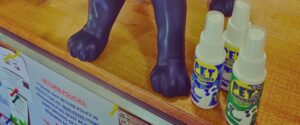
This company is well-known for its dog goggles, which provide stylish and practical eye protection for canines spending the day in the sun, peering out the window while driving, or riding behind you on a motorcycle. It seems sensible that they later expanded to provide dog sunscreen.
Doggles Pet Sunscreen is offered as a pump spray in Original Unscented or Tropical Scent. It is safe to use on skin and coat since it is water soluble, non-toxic, non-oily, and doesn’t irritate. A 60mL pump spray typically costs $15 to $20.
Aniwell Filta Sunscreen
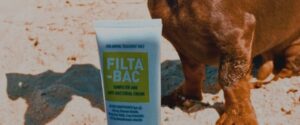
Aniwell Felta Bac Antibacterial Sunscreen is labelled as SPF 29-33. It blocks up to 97% UV radiation and acts as your pet’s second skin to keep them safe from UV damage and bacterial infection on injuries.
Filta Bac keeps moisture, filters out dirt, and allows your pet’s wound to heal for a healthy recovery. It can also be used as a sunblock. Filta Bac costs approx $19 for a 120g tub and $45 for a 500g tub.
Are Pets Safe From Sunscreen?

There are various reasons why pet-specific sunscreen products are available, and you should use extreme caution when dabbing human sunscreen on your dog’s nose. Animals may be at serious risk for health problems from common sunscreen chemicals.
When ingested in significant concentrations, zinc is hazardous. Depending on the sunscreen’s zinc content and the animal’s size, there is a chance of poisoning if zinc oxide is unintentionally consumed. In the near term, zinc intoxication in your cat or dog might cause vomiting and weariness.
However, other symptoms, such as yellow gums, depression, eyes, diarrhea, or skin, dehydration, and urine or feces with an orange hue, might emerge in the following hours or days.
If you think they may have ingested zinc, take the pet to the vet for diagnostics and therapeutics. Any poisoning is more harmful and more difficult to treat the longer it is left untreated.
Sunscreens for pets do not include salicylates since they are a threat to cats and are present in certain sunscreens. However, it is unusual for salicylates in sunscreen at high levels to endanger dogs. Although PABA may cause significant organ damage in animals, it is often absent from current sunscreens since it can irritate your skin.
Do Pets Require Sunscreen?

Dogs, cats, and other animals may develop sunburns the same way as humans. Although fur protects against UV rays, light-coloured, thin, or hairless cats and dogs are more vulnerable to skin cancer, sunburn, and other illnesses.
The most typical places for sunburn in dogs and cats are where the hair is sparse, or the skin has slight pigmentation, although it can also show through the fur on white or cream-coloured animals.
Sunburn often manifests as inflamed, red skin on hairless or other sensitive places, including the skin around the lips, the points of the ears, and the bridge of the nose.
It can also result in hair loss. Applying sunscreen to these exposed places helps stave against sunburn and keep your pet comfortable during all of your outdoor excursions.
Does Pet Sunscreen Work?

Yes, pet sunscreen works, but it is not a miraculous solution for your fluffy friend’s sun safety. It tends to have less SPF than sunscreen intended for human skin. Additionally, it is trickier to use sunscreen on pets as they play around in the dirt and lick the sunscreen off.
While this means that it can not guarantee 100% protection from UV damage, regular reapplication of the pet sunscreen can maintain maximum protection. Pet sunscreen will make a difference to your pet’s health.
What Are Pet-Friendly Sunscreens Available?
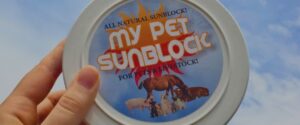
It’s crucial to use sunscreen designed exclusively for pets since human sunscreens include substances that are poisonous to dogs and cats if consumed.
This summer, there is a list of the top dog sunscreens and cat sunscreens available, all of which have received the seal of approval from our in-house veterinarian to make things simple for you. Here are five dog and cat sunscreens recommended by veterinarians to “protect” your pet throughout the summer.
How Can You Keep Your Pet Sun Safe?

How can I protect my cat from the sun? Similar to humans, it is best to take a comprehensive approach to sun safety, which includes limiting sun exposure when UV radiation is typically at its peak, providing lots of places to relax in the shade, and keeping pets indoors on days with extremely high UV ratings.
Dogs that simply won’t stay in the shade and must spend their day in the sun may find sunscreen beneficial.
Little Rex or Mittens can be shielded from the sun using methods other than sunscreen. Dog goggles and sunglasses may shade their eyes from UV rays and guard them against dust and wind while travelling in a car or on a motorcycle.
Rasher shirts may be more effective in preventing skin damage from the sun’s rays, mainly if your dog is in the water or digging in the soil, which can remove sunscreen.
A longer-term option to reduce UVA and UVB radiation entering your home is to have your home’s windows tinted, providing an additional layer of security for animals and human family members.
Applying sunscreen repeatedly can be a hassle, especially if you have a wiggly dog or an obstinate cat. The same is true for clothes and eyewear. If they are ineffective, look into other painless methods of providing your pet with sun protection.




